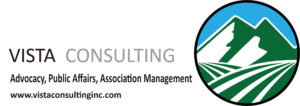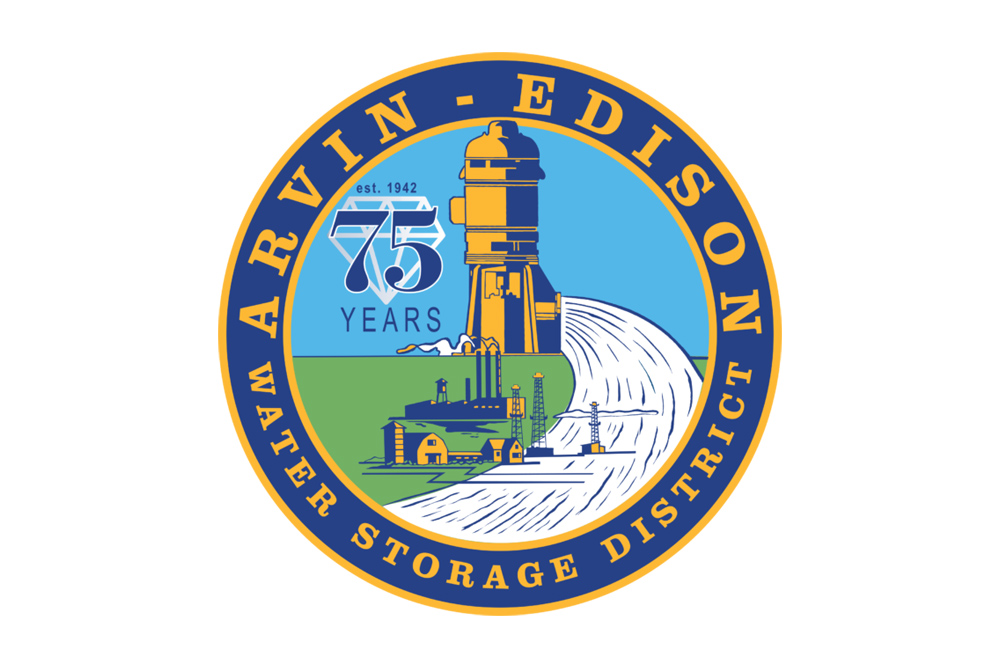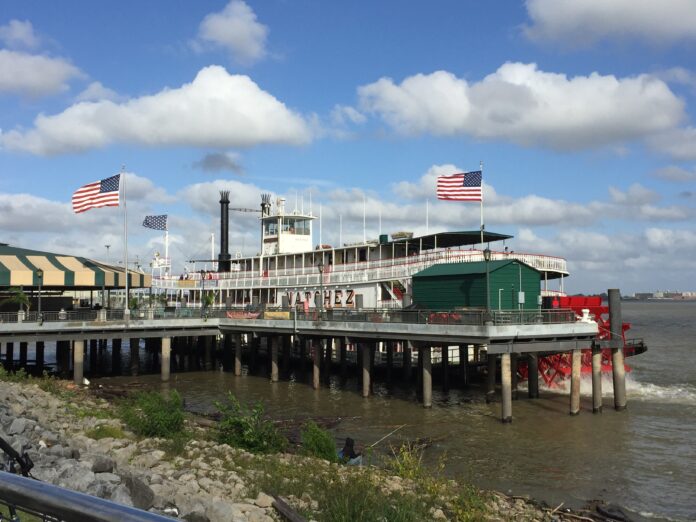 The San Luis Delta Mendota Water Authority held its board of directors meeting on Thursday, December 10, 2020 remotely from its Los Banos headquarters on Zoom. One of the biggest items on the agenda is the bonding for repairs at the federal Bill Jones Pumping Plant. There are five very large pumps which move water out of the San Joaquin Sacramento River Delta into the Delta Mendota Canal which then moves the water to the San Luis Reservoir. Each of these pumps were originally designed to run full throttle but over the years increased regulations have caused the pumps to start and stop frequently and that has put a great deal of stress on the machines. The motors have to be rewound and reset to operate at variable speed. This costs millions of dollars per pump.
The San Luis Delta Mendota Water Authority held its board of directors meeting on Thursday, December 10, 2020 remotely from its Los Banos headquarters on Zoom. One of the biggest items on the agenda is the bonding for repairs at the federal Bill Jones Pumping Plant. There are five very large pumps which move water out of the San Joaquin Sacramento River Delta into the Delta Mendota Canal which then moves the water to the San Luis Reservoir. Each of these pumps were originally designed to run full throttle but over the years increased regulations have caused the pumps to start and stop frequently and that has put a great deal of stress on the machines. The motors have to be rewound and reset to operate at variable speed. This costs millions of dollars per pump.
Attorney Rebecca Akroyd informed Chairman Cannon Michael there was a quorum and Michael called the meeting to order at 9:30am Pacific Time. Akroyd called roll and things got rolling. There’s three screen types I saw: still photos, live camera and life camera with background screen. Oh, there’s also just a screen with a name or phone number. Some of the screens are pretty interesting. Photos of lakes and logos and all manner of things are behind the smiling faces.
There was no public comment and the consent calendar was approved. The consent calendar is a list of items so routine in nature they are almost always approved. However, if there is an item a board member or even a member of the public would like pulled for further detail and discussion it can be removed.
Action Items
Executive Director Federico Barajas reported to the board agreements with the Friant Water Authority for the above mentioned pump rewind funding. Because the Delta Mendota Canal provides the Exchange Contractors with water that would have come from the San Joaquin River the FWA is on the hook for financial support. Friant didn’t want to get involved in a long bonding obligation so opted to pay its share up front. I think I have that straight. SLDMWA Chief Operating Officer Pablo Arroyave explained further there needs to a board action to legally cement this bond offering in place. He referred to one of the documents as a POS. I’m sure the initials have a different meaning than the one that first sprang into my mind. One of the bond counselors or someone explained the legality behind this. The board approved an official statement that gets the bond process started, or furthered.
Barajas next told the board SLDM needs to consider fiscal year 2022 objectives now that it looks like California may have a new senator very soon and with a new federal administration’s intent on water still not known. Director Bill Diedrich pointed out SLDMWA Director of Water Policy J. Scott Petersen and staff did an outstanding job in writing up a very cogent board packet on this item. The board agreed and voted to approve the directive.
Brown Act
Next Akroyd introduced Jeff Mitchell of the law firm Kronick (another interesting double meaning) law firm who explained the Ralph M. Brown Act. I’d like to get a copy of his power point presentation. Mitchel explained; what can and can’t be discussed in open and closed session, who and what the Brown Act applies to, when it applies and what constitutes a quorum and what is a meeting were detailed. For my purposes and understanding the Brown Act forces a public agency paid for by the taxpayers and doing business of the government to lay its cards on the table. Special districts are subdivisions of the State of California’s government. Irrigation and water districts, JPAs like San Luis Delta Mendota Water Authority are in this category and therefore subject to the Brown Act.
Mitchell got in the weeds on what a meeting and quorum is under the act. What about an annual dinner, a Christmas or retirement party or groundbreaking ceremony? The Brown Act has something to say about that. He also spoke about something I was wondering about – what happens when the entire board shows up to ACWA and has dinner? Mitchell said be careful about what you talk about even in a social setting. No discussing district business. At a breakout session at ACWA the subject is going to be water but if a quorum of a board or committee are all there you can’t talk about anything off the session’s agenda. You have to watch out for serial meetings as well. Director Bob can’t call Director Sally and discuss a matter of business and then Sally calls Director Pedro and talks about  it. Can’t do that. You can’t even have Bob call his nephew Odell who isn’t on the board and Odell calls Sally. Texts and social media can trip you up yet. Mitchell said so far there hasn’t been a case of a director liking another director’s Facebook post it might be a violation of the Brown Act. This is relatively new territory for the act. Should a general manager or other staff send an email to everyone on the board a director can’t hit reply all without a potential violation.
it. Can’t do that. You can’t even have Bob call his nephew Odell who isn’t on the board and Odell calls Sally. Texts and social media can trip you up yet. Mitchell said so far there hasn’t been a case of a director liking another director’s Facebook post it might be a violation of the Brown Act. This is relatively new territory for the act. Should a general manager or other staff send an email to everyone on the board a director can’t hit reply all without a potential violation.
Mitchell gave a hypothetical scenario. The Little Boston WD was considering a $1 million construction contract to its water treatment plant. He said if less than a nine member quorum tours the plant ahead of time that’s OK. But if two groups totaling more than a quorum tour the plant and then talk it over that could be a violation.
Next Mitchell spoke about closed sessions. Price and terms of real estate transactions, personnel and labor negotiations and legal consulting for existing or potential lawsuits can all be discussed privately in a closed session. All closed session agenda items have to be posted publicly and a board has to allow public comment before the closed session begins and must report any action taken or if no action was taken after the meeting. Mitchell also spoke on who can attend a closed session. Of course attorneys and key staff as well as the board but alternative board members can’t attend unless the board member couldn’t be there.
In addition to closed sessions there are regular open sessions and special sessions. These are all covered under the Brown Act. Public comment is required but if the comment isn’t on the agenda a board member can’t comment on the comment. A board can’t require someone to identify themselves, they can request they do but they can’t force it. A time limit for individual public commenters can be required but it has to be universally enforced. You can’t allow some to speak longer than others. The last Metropolitan WD meeting I listened to had public comments last for more than an hour and ranged from actual water matters to commentary on social conditions. Some of it was silly but the public did get its say.
Michael said there are board members with legal degrees and each member district has attorneys and Akroyd is there to help determine Brown Act violations. He asked Mitchell for advice if there are questions or differing opinions. Mitchell said if at all possible bring these up to the general counsel before the meeting. He said his least favorite time to discuss a Brown Act question is during a meeting. He said he and Akroyd do have discussions on occasion and at although it takes time there is legislation counsel available.
Director William Bourdeau asked what changes to watch out for in remote meetings. The China Virus does change things. Mitchell said the Brown Act will have to take into consideration changes. Teleconference meetings requirements need to be updated. He said he expects the regulations for teleconferencing to be eased rather than tightened.
Legislation
Petersen reported on some of Biden’s possible cabinet picks if indeed Biden has legally won the election and assumes the office. There are local and regional water projects that could benefit from federal legislation that must be passed by December 18th. There are two competing COVID packages, one from the Trump administration and one from congress. Petersen said to expect a more complicated budgeting process next year. Not all agenda item packages and reports were available from the SLDM website and Petersen’s wasn’t included unfortunately – he had a lot of interesting stuff to say but he talks faster than I can type. Congressman Jim Costa didn’t get the Ag Committee chairmanship. Senator  Dianne Feinstein has stepped down from the Senate Judiciary Committee. Governor Gavin Newsom has to nominate someone for the US Senate and Attorney General. As well as these higher profile positions the Gov has lost some of his staff to Washington and back fill will be taking place. The new California legislative session will begin January 8th and all though we’re in a pandemic climate is expected to be a big deal.
Dianne Feinstein has stepped down from the Senate Judiciary Committee. Governor Gavin Newsom has to nominate someone for the US Senate and Attorney General. As well as these higher profile positions the Gov has lost some of his staff to Washington and back fill will be taking place. The new California legislative session will begin January 8th and all though we’re in a pandemic climate is expected to be a big deal.
Former congressman Dennis Cardoza then spoke and said depending on who gets selected to be the new Secretary of Department of Interior and the new US Bureau of Reclamation Commissioner and many others will need an education on California water. Former Secretary of State John “You bet I might” Kerry will be the Biden climate change guy at the Cabinet level and that could be troublesome. (The swamp was obviously not drained and we’re going to have to work hard to keep out of the Ministry of Truth with a cage full of rats strapped to our face while we’re forced to believe two plus two equal five. I exaggerate a little but . . .) But there is some hope as Cardoza, who served as a Democrat back when the two parties sought similar goals on differing paths believes the Senate will remain in Republican hands after the Georgia vote.
XO Report
Barajas began his report by having Chris Park of CDM speak on the raising of the BF Sisk Dam and expansion of San Luis Reservoir. The Bureau many publish the EIR as early as next week.
Next the incredible Frances Mizuno updated the board on the San Luis Transmission project. Valley Water, also known as the Santa Clara Valley WD has shown some considerable interest in investing in this project and is weighing its options and decisions. Barajas said that looks good.
Barajas said next month’s board meeting will be moved back to January 14th and there will be changes in July and September due to holidays. He said he was looking for some feedback for the May meeting. The ACWA Spring Conference may or may not be virtual but it is scheduled at the same time as the committee and board meeting. He asked the board to share their ideas. Also, a January 18th orientation for new directors is scheduled. There will also be another finance meeting this month on the 17th. Barajas announced SLDMWA’s Sacramento offices will be moving from downtown to the Garden Area next month.
COO Report
Arroyave said the salary search meetings are expected to wrap up in time for next month’s board meeting. The Jones rewind project currently underway will be finished in time for the coming pumping season. He asked Mizuno to speak and she said the dry conditions and  expected precipitation dearth means more water transfers need to happen to augment supplies. She said letters of intent for water purchases need to be send by early next month so the process can begin early and sellers/buyers can get the proper documentation to DWR and the Bureau.
expected precipitation dearth means more water transfers need to happen to augment supplies. She said letters of intent for water purchases need to be send by early next month so the process can begin early and sellers/buyers can get the proper documentation to DWR and the Bureau.
Water Report
Tom Boardman gave his report saying Cooperative Operating Agreement is almost even and there is a possible storm coming in next week so there are hopes for more water to enter the Delta. He said someone from the state said it looks like conditions in the western Pacific Ocean indicate the high pressure ridge off the coast will shift and storms can come into California by the end of this month. Very little rain and record low snowpack in the Shasta area. So during the month of November there was no refill in San Luis Reservoir. That means we’ll have to have an above average year to fill the SL. Not a lot of good news but Boardman has been delivering bad water news for decades and his shoulders are broad man.
Committee Reports
Not much happened.
Outside Agency Reports
There was no SFCWA info and the Family Farm Alliance report was in the packet.
Mike Wade of the California Farm Water Coalition invited everyone to send in policy suggestions. He said international water trading has made a big splash (my words not his.) He said this brings up concerns for public water agencies and could drive up prices of ag water. It also holds out the specter of a repeat of what happened in Australia. Low performing water trading led to a reallocation of water rights.
Diedrich gave the ACWA report saying the Fall 2020 ACWA virtual conference has completed and he recommended listening to all three of the state cabinet secretaries who spoke. There was talk of reduced lawsuits under a new federal administration. Diedrich said there was a warning about how the Colorado River could impact the San Joaquin Valley if things don’t change. There was also a San Joaquin Valley Water Blueprint update. Don Cameron spoke as Chair of the California State Board of Food & Agriculture who said ag must do a better job of touting its benefits.
Board Member Reports
The next item was board member reports but not a single one spoke up.
Closed Session
The closed session agenda was hefty and in the spirit of the Brown Act I’ll list some of it and also in the spirit of not laying extra reading on you I’ll not list it all. Today’s closed session agenda began with: a public employee performance evaluation of the executive director and general counsel. I predict they nail it. Next was two cases of anticipated litigation. Things wrapped up with 16 cases of existing litigation ranging from the Natural Resource Defense Council – greedy corporate law firm or a benevolent environmental group seeking what’s best for the planet and of us who live here? – suit over contracts on the Delta Mendota Canal to the Winnemem Wintu Tribe suing the State Board over waste discharge. And that was that. Be good to each other.
DISCLAIMER OF RESPONSIBILITY; Waterwrights strives to provide his clients with the most complete, up-to-date, and accurate information available. Nevertheless, Waterwrights does not serve as a guarantor of the accuracy or completeness of the information provided, and specifically disclaims any and all responsibility for information that is not accurate, up-to-date, or complete. Waterwrights’ clients therefore rely on the accuracy, completeness and timeliness of information from DAW entirely at their own risk. The opinions expressed in this report are those of the author and do not represent any advertisers or third parties.
ALL RIGHTS RESERVED. Copyright 2020 by WaterWrights.net/DAW
SAN LUIS & DELTA-MENDOTA WATER AUTHORITY was established in January of 1992 and consists of approximately 2,100,000 acres of 29 federal and exchange water service contractors within the western San Joaquin Valley, San Benito and Santa Clara counties. The governing body of the Authority consists of a 19-member Board of Directors classified into five divisions with directors selected from within each division. The main conveyance is the Delta-Mendota Canal that delivers approximately 3,000,000-acre feet of water within the Authority service area. Of this amount, 2,500,000-acre feet are delivered to highly productive agricultural lands, 150,000 to 200,000-acre feet for municipal and industrial uses, and between 250,000 to 300,000 acre-feet are delivered to wildlife refuges for habitat enhancement and restoration.
Board – Chairman: Cannon Michael,
Staff – Executive Director: Federico Barajas, COO: Pablo Arroyave, Attorney: Becca Ackroyd, J. Scott Pedersen: Director of Water Policy
Email: youtellus@sldmwa.org 209/826-9696
P.O. Box 2157 Los Banos, CA. 93635
































